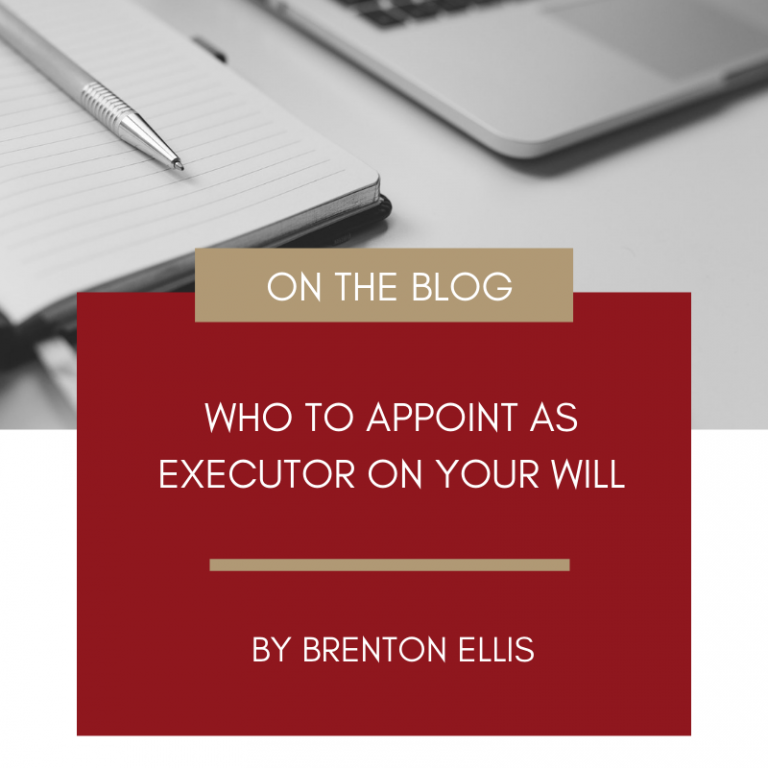WILL YOU BE MY AGENT? DECEASED ESTATES REQUIRE SPECIAL SKILLS
We all know the basics on wills –why they are important, who should draft them and what can happen when you don’t have one….but what really happens when the estate has to be administered?The role ofan ExecutorOne of the most important decisions you have to make when drafting your will is who to appoint as executor. The executor has very specific tasks that need to be executed in the administration process–reporting of the Estate tothe Master of the High Court;-collect all assets and pay all liabilities of the deceased, including costs arising from the administration of the estate;-distribute the remaining assets to the beneficiaries as named in the will or relevant legislation if there is no will;-submit a final liquidation and distribution accountthat complies with the formalities of the Administration of Estates Actto the Master of the High Court upon finalising the estate.Included in the duties listed above,the Executor must ensure that all tax returns are completed and taxes paid up to date, all relevant parties notified of the deceased’s passing ie. creditors and all service providersas well as all the administration necessary to transfer assets to beneficiaries.Many complexities may arise during the administration process eg. litigation if there are disputes over the will or insufficient assets to cover the liquidity needs in the estate. When dealing with certain business assets the process can even further be complicated and industry specific knowledge would be required in dealing with such assets.The Master of the High Court imposes certain formalities on Executors during the administration process in terms of timelines. It therefore is clear that in order to administer an estate requires specific skills, knowledge and experience to ensure a proper and timely administration process.Who to appoint as ExecutorMany people prefer appointing theirsurviving spouse as Executor thinking that it would be the safest and possibly most cost effective choice.Others choose a relative or individual specialist to wind up the estate. Let’s look at what these choices may entail –Where the value of an estate is R125000 or more, an Executor is appointed by the Master of the High Court. Usually the Executor is appointed in the Will or where no Will has been drafted, a person nominated by the heirs.Regulation 910 of the Attorneys Act states that only an attorney, trust company or auditor can be appointed as Executor. Where an individual has been nominated as Executor in a Will and is not an attorney, trust company or auditor, the Master of the High Court will require the appointment of an agentthat complies with Regulation 910to assist such individual with the administration of the deceased estate.It is also important to note that if the Will did not exempt the Executor of security (or where there is no Will), the Executor will have to lodge security to the full value of the estate.Besides the formal requirements of the Master of the High Court,the practical side must also be considered. A surviving spouse or relative is going through an emotional trauma at the loss of a loved one and may not be in the state of mind or emotionally stable position to arrange all the formalities of getting the deceased estate reported. When appointing an individual specialist,the risk of such individual having passed away before the deceased who nominated such person in the Will or such person no longer being able to administer estates must also be considered.Therefore we recommend that a credible institution be appointed that has proper succession planning in place and a panel of specialists to administer the estate.One of the concerns of most people is that they will be just another number in the administration process while they are undergoing apersonal and traumatic event.This is where Glacier aims to provide a personalised service by providing the most senior administrator to handle the process as well as the Fiduciary Specialist being available to the family during this time.What fees can the Executor charge?Fees thatan Executor can charge are regulated and capped at a maximum of 3,5% plus VAT (if so registered) on the gross value of assets in an estate. Furthermore, the Executor is entitled to 6% on income accrued and collected after death of the deceased.ConclusionThere are many reasons why a person should carefully consider why and who to appoint as Executor, even in the case where there was no Will. Please contact a specialist to help you make the right decision when drafting your Will or looking for an agent toadminister the estate.
